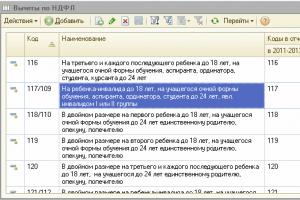Losing weight up to 8 kg in 14 days.
The average daily calorie content is 690 Kcal.
A vegetable diet is a useful and effective method for transforming your figure. If during the vegetable season you want to get rid of excess fat ballast on your body, then it is best, as many experts note, to turn to this method. There are many methods for losing weight using vegetables (both in duration and in diet diversity). Choose the one that is right for you to make losing weight easy, enjoyable and effective.
Let's look today at the most popular options for vegetable body transformation, designed for 3, 7, 14 days and one month.
Vegetable diet requirements
We suggest starting your acquaintance with the types of vegetable diets with the shortest - three days- option. If you've had too much calories at holiday feasts, great solution will work on your figure with the help of this diet. On it, experts suggest consuming up to 1.8 kilograms of vegetables (any except potatoes) daily. You need to eat them raw, as well as boiled and baked. You can also prepare salads by adding a little vegetable oil. You can also season them with low-calorie mayonnaise. But for a more noticeable weight loss result, it would be wise to choose yogurt or kefir for salad dressing. In addition, these products are clearly healthier. The daily diet should be divided into approximately 5 servings and eaten when you feel hungry. Drinking in any version of the vegetable diet is allowed clean water and unsweetened tea (preferably green). If you want to do a mini-unload and just give your gastrointestinal tract a rest, spend one day on vegetables.
A slightly longer method of losing weight is seven days vegetable diet. Now you don’t have to eat only vegetables. Some fruits can keep them company (you can find out more in the diet menu), low-fat dairy and fermented milk products, berries, and legumes. It is recommended to eat 4 times (breakfast, lunch, afternoon snack and dinner). But if you feel hungry even between breakfast and lunch, it is permissible to have a light vegetable snack (for example, eat a cucumber). Listen to your body to avoid a breakdown.
Vegetable base two weeks diet consists of vegetable salads and fruits. Use vegetable oils and freshly squeezed lemon juice as a salad dressing. Also in this diet option it is not allowed a large number of dried fruits and nuts. Four meals a day are promoted, with no food for the next 3 hours before going to bed.
The longest version of the vegetable diet continues month. If you lose noticeable weight earlier, you can stop. There should be room in the diet for a sufficient amount of vegetables: pumpkin, zucchini, cucumbers, tomatoes, onions and green onions, various greens, green peas, etc. Prepare from these products fresh salads, vegetable soups and stews. Nowadays, protein products can keep vegetables company. It is allowed to include a little meat in the diet, good choice there will be boiled beef or chicken. You can also introduce some dairy products (low-fat cottage cheese and kefir) into the menu. Meals must be distributed in such a way that there are at least five daily meals, and up to 6. A strict portion size is not prescribed. But, given the frequency of meals, it is easy to guess that they should not be massive. You killed the worm and wait for the next meal. Of course, one meal should not be equal to the size of a saucer, but, of course, it should not be made up of three courses either. Listen to your body and don't overeat. Salads can be seasoned with vegetable oil. Salt is okay, but in moderation.
Vegetable diet menu
An approximate version of a vegetable diet for 3 days
Breakfast: vegetable salad(we use tomato, cucumber and bell pepper), sprinkled with olive oil and lemon juice.
Snack: a few carrots whole or chopped with a grater.
Lunch: Make a salad by mixing finely chopped white cabbage with slices of fresh cucumbers.
Afternoon snack: boiled beets.
Dinner: baked peppers stuffed with eggplant.
An approximate version of a vegetable diet for 7 days
Day 1
Breakfast: cabbage salad with apples; a glass of berry compote.
Lunch: a bowl of vegetable soup; green tea.
Afternoon snack: grate carrots and season with olive oil.
Dinner: stuff peppers with eggplants and tomatoes and bake; berry juice or compote.
Day 2
Breakfast: low-fat homemade yogurt or kefir; fresh berries.
Lunch: salad of bell peppers, tomatoes and cucumbers; some cheese and olives; a glass of fruit jelly.
Afternoon snack: medium-sized baked apple.
Dinner: a serving of cabbage broth.
Day 3
Breakfast: radish salad with herbs; green tea.
Lunch: several potatoes baked without oil; sauerkraut; tea.
Afternoon snack: bake turnips.
Dinner: vegetable stew (without potatoes); a glass of dried fruit compote.
Day 4
Breakfast: cabbage broth and green tea.
Lunch: low-fat soup made from non-starchy vegetables.
Afternoon snack: salad of boiled beets and a small amount of prunes.
Dinner: salad of non-starchy vegetables plus a glass of low-fat kefir.
Day 5
Breakfast: 1 banana and a glass of low-fat yogurt without additives.
Lunch: vegetable stew; green tea.
Afternoon snack: raw or baked apple.
Dinner: vegetable broth and unsweetened compote made with dried fruits.
Day 6
Breakfast: a glass of vegetable broth and berry compote.
Lunch: low-fat soup cooked in cabbage broth.
Afternoon snack: cucumber and tomato salad.
Dinner: bake the pumpkin until golden brown without any additives; green tea.
Day 7
Breakfast: salad of various fruits, preferably non-starchy type.
Lunch: pea porridge without butter and green tea.
Afternoon snack: grate carrots and season with olive oil.
Dinner: stewed zucchini plus a glass of low-fat kefir.
An approximate version of a vegetable diet for 2 weeks
Breakfast: orange and lemon juice (preferably freshly squeezed); any citrus.
Lunch: vegetable salad from any non-starchy vegetables.
Afternoon snack: a few prunes and dates.
Dinner: salad of raw vegetables or boiled products of this type (priority turnips, spinach, cauliflower, carrot); any non-starchy fruit or nuts as a dessert.
Note. This 14-day diet diet is not unchanged. You can create a menu at your own discretion, taking into account the basic dietary recommendations.
An approximate version of a vegetable diet for 1 month
Breakfast: tomato and cucumber salad.
Snack: Grated carrots, drizzled with olive oil.
Lunch: boiled beef; lettuce leaves and vegetable of your choice (non-starchy type).
Afternoon snack: a few tablespoons of low-fat cottage cheese.
Dinner: baked pumpkin; a glass of low-fat kefir.
Contraindications for a vegetable diet
- You cannot adhere to such a diet if you have diseases of the gastrointestinal tract, kidneys, or exacerbations of chronic diseases.
- Also, in a strict form, pregnant women, during breastfeeding, children, the elderly and those with allergies to any of the products proposed in the diet should not follow the vegetable method.
Advantages of a vegetable diet
- The undeniable advantages of vegetable weight loss include the beneficial properties of the main diet products - vegetables. If consuming other foods in large quantities can cause negative consequences, then vegetables, on the contrary, will enrich the body with many of the substances it needs.
- The process of losing weight, with a reasonable approach, will become an easy and pleasant pastime, during which you will feel rainbow changes, both in your figure and in your appearance.
- Also, the advantages of vegetable nutrition include the low cost of these products, especially during their season. Without purchasing, say, meat and fish products, you can save significantly.
- Just ideal option This diet is for people who have their own garden or country cottage area, on which these healthy goodies grow.
- Vegetables have a gentle cleansing effect on the body, contribute to the natural normalization of the digestive process, increase immunity, giving the body strength to fight viral diseases.
- Vegetable products are also an excellent prevention of cardiovascular diseases and cancer, resist the occurrence of edema and the formation of kidney stones, and reduce the risks of diabetes and joint diseases (rheumatism and arthritis).
- The abundance of vitamins and nutrients found in vegetables has a positive effect on our appearance, strengthening nails, hair, making skin healthier and smoother. And in the future, do not minimize the amount of vegetable products in your diet, regardless of whether you are going to lose weight.
- Many who have transformed their body with the help of vegetables happily state the fact that with a smooth exit from the diet, the results obtained last for a long time.
- During a diet, the body quickly sheds extra pounds due to the low calorie content of the proposed diet.
- The presence of complex carbohydrates helps regulate blood sugar.
- A varied diet will not make the process of losing weight monotonous and boring and will not push you to want to quit everything as soon as possible.
Disadvantages of a vegetable diet
- The disadvantages of a vegetable diet are probably that it is not year-round. If you want weight loss to be not only effective for your figure, but also beneficial for your health, you should do it during the vegetable season. Otherwise, you will have to purchase products that are not only poor in useful substances, but also capable of harming the body due to the abundance of chemicals with which they are stuffed for long-term storage and attractive appearance.
- This technique may not be suitable for meat eaters (with the exception of a monthly diet). After all, vegetable diet options are not rich in this luxury. Although most people losing weight note that this diet is easily tolerated, for people who are accustomed to constantly eating meat, this technique can become difficult to use. In this case, nutritionists recommend not torturing yourself and choosing a diet that is more acceptable to you, which will also include vegetables, but there is also a place for meat (for example,). Also, not all nutritionists consider a vegetable diet to be completely balanced in terms of the content of nutrients and minerals.
Repeated vegetable diet
A three- or seven-day diet can be repeated once every month and a half. If you decide to lose weight within two weeks, you should not repeat this marathon for the next 1-1.5 months. But after losing weight for a month using the vegetable method, nutritionists ideally recommend waiting six months.
There is a diet in which only vegetables and fruits are consumed. But the method of preparation does not matter. They can be consumed raw, boiled or steamed. The very fact that the entire menu is based only on plant foods is important. Eating only fruits and vegetables has positive and negative aspects. A short-term diet will be beneficial, but if you follow such a diet for a long time, it will negatively affect your health.
What will happen if you only eat vegetables and fruits in the short term?
The advantages include:
- Helps get rid of swelling.
- Has high efficiency.
- Strengthens the immune system.
- Allows you to eat deliciously.
- Pairs well with yoga classes.
- Prevention of diabetes, cardiovascular diseases, cancer.
- Improves well-being.
- The skin becomes smooth.
- Cleanses the blood, liver and kidneys from harmful substances.
- Natural products are very beneficial for health.
- Detoxification on cellular level.
- Helps reduce body weight.
- All dishes are easy to prepare.
- If you exit the diet correctly, the weight loss effect can be easily maintained for a long time.
- Lowers blood pressure.
- Reduces the likelihood of developing osteoporosis.
Important When dieting, you need to drink several liters of liquid per day. For example, water or fresh juices.

Minuses:
- Unbalanced amount of proteins, fats, carbohydrates in the diet.
- The likelihood of getting helminthiasis due to rotten or poorly washed fruits.
- The acids contained in fruits corrode the enamel of teeth, the mucous membranes of the mouth and stomach.
- The list of permitted products is limited, so it is not very easy to create a menu and find recipes.
- Monotonous dishes become boring, so the risk of consuming forbidden food increases.
- If you have diseases associated with the gastrointestinal tract, such a diet is prohibited.
- It is difficult to stick to a diet outside the home, for example, while visiting.
- Dietary fiber can cause diarrhea.
- Lack of vitamin D, which is needed for healthy bones, calcium metabolism, and energy maintenance.
- Lack of omega-3 fatty acids, essential for heart, eye, and brain health.
- Insufficient protein intake.
- Saturation does not last long.
Reference Vegetable and fruit diets are contraindicated for children and pregnant women.
Disadvantages of a long-term diet on vegetables and fruits
Lack of minerals and vitamins
 Fruits and vegetables contain fiber and carbohydrates, but they do not contain all the necessary substances that are found in meat and milk: protein, vitamins B, D, potassium, calcium, zinc, iron. The body also needs fats for normal functioning. Without them, the brain and psyche will not be healthy. Proteins and fats are necessary for effective cleansing of the body, strengthening the immune system, and good metabolism. If you eat only plant foods, muscle mass is lost over time. Vitamin deficiency may develop, dizziness, dry skin, headache, hair loss. Some vegetables, for example, rhubarb, sorrel, spinach, artichoke, contain oxalic acid, which binds with minerals in the intestines. Molecules arise that prevent minerals from being absorbed into the blood.
Fruits and vegetables contain fiber and carbohydrates, but they do not contain all the necessary substances that are found in meat and milk: protein, vitamins B, D, potassium, calcium, zinc, iron. The body also needs fats for normal functioning. Without them, the brain and psyche will not be healthy. Proteins and fats are necessary for effective cleansing of the body, strengthening the immune system, and good metabolism. If you eat only plant foods, muscle mass is lost over time. Vitamin deficiency may develop, dizziness, dry skin, headache, hair loss. Some vegetables, for example, rhubarb, sorrel, spinach, artichoke, contain oxalic acid, which binds with minerals in the intestines. Molecules arise that prevent minerals from being absorbed into the blood.
Loss of energy
Men need to consume 2,700 calories per day, and women up to 2,000 calories. Plant foods are low in calories, so it is impossible to get enough calories. Without nuts, grains, seeds, and vegetable oils, it is impossible to provide a sufficient level of energy. Even if you try to distribute your energy needs, eating fruits and vegetables will leave you with a lack of carbohydrates, which help you concentrate and be alert. There is also a lack of vitamin D, which is responsible for maintaining energy. The person experiences severe fatigue, weakness, and irritability. Work productivity and concentration decrease. A constant feeling of hunger will cause discomfort.
Fast weight loss
With such a diet, you can quickly lose weight, but this will happen not due to the fat layer, but due to muscle mass. Outwardly, this looks unaesthetic, because the skin does not have time to adapt to the new volumes of the body, which leads to a loss of elasticity, resulting in stretch marks, folds and sagging. Also, after a diet, many return to high-calorie foods, which leads to double weight gain. The body will be under great stress. Women may experience hormonal disorders, disruptions in the endocrine system, and cessation of the menstrual cycle, which is dangerous for reproductive function. An earthy tint to the skin of the face and bruises under the eyes will appear.
 When consuming vegetables and fruits, a large amount of gas is formed in the stomach. With prolonged consumption of carbohydrates alone, the stomach begins to swell. A person feels heartburn, nausea, colic in the stomach and intestines. This is how poorly digested food manifests itself. Food is a heavy burden in the body, contributing to the development of flatulence. The main reason is high content fiber in vegetables and sucrose in fruits. With large consumption of fruits and vegetables, undigested fructose and fiber in the lower intestines become a breeding ground for bacterial microflora, as a result of which the enzyme system is disrupted.
When consuming vegetables and fruits, a large amount of gas is formed in the stomach. With prolonged consumption of carbohydrates alone, the stomach begins to swell. A person feels heartburn, nausea, colic in the stomach and intestines. This is how poorly digested food manifests itself. Food is a heavy burden in the body, contributing to the development of flatulence. The main reason is high content fiber in vegetables and sucrose in fruits. With large consumption of fruits and vegetables, undigested fructose and fiber in the lower intestines become a breeding ground for bacterial microflora, as a result of which the enzyme system is disrupted.
Dramatic reduction in cholesterol
Eating low in fat but high in carbohydrates dramatically reduces blood cholesterol levels. Studies have shown that when switching to a plant-based diet, cholesterol levels decrease by 35 percent. The condition becomes unstable. Depression, nervousness, aggressiveness or apathy begins. There is an increased load on the kidneys, liver, brain and lungs. Pathologies develop. The likelihood of malignant tumors increases. Hormonal imbalances, thyroid problems, and diabetes second type. Sensitivity decreases and reflex inhibition occurs.
Reduced resistance to the development of inflammation
Proteins and vitamins have the greatest impact on strengthening the immune system. Without these components, the body's protective function against the development of inflammatory processes is reduced.
Reference Large amounts of fructose cause inflammation in the endothelial cells that line blood vessels.
An unbalanced diet disrupts the digestion process and causes an imbalance in the intestinal microflora, where immune system cells accumulate. When the immune system is weakened, resistance to pathogenic bacteria is lost. You feel unwell, tired, and drowsy. Frequent colds and viral diseases are observed. Chronic diseases are getting worse. There is an enlargement of the lymph nodes. Wounds do not heal well, and fungal infections may appear on the skin. Protection against malignant tumors is reduced. The body cannot resist diseases because the immune system does not work as it should.
How much weight can you lose in a month if you only eat vegetables and fruits?
 Due to low calorie content plant products and a high content of fiber, which is not broken down in the stomach, creating a feeling of fullness, you can lose weight well. Depending on your initial weight, you can actually lose 10-15 kg in a month of such a diet. To prevent the weight from returning, you need to get out of it correctly and not return to eating junk food.
Due to low calorie content plant products and a high content of fiber, which is not broken down in the stomach, creating a feeling of fullness, you can lose weight well. Depending on your initial weight, you can actually lose 10-15 kg in a month of such a diet. To prevent the weight from returning, you need to get out of it correctly and not return to eating junk food.
To improve your health, you can switch to a fruit and vegetable diet. As a result, your weight will decrease significantly. But you should not stick to this diet for long. Otherwise, the opposite effect will occur and all body systems will suffer. Dangerous diseases may appear. Also, before such a diet, even short-term, it is better to consult a specialist. Nutrition should be balanced and include proteins, fats, carbohydrates, vitamins and minerals.
We all hear from childhood that we must eat fruits and vegetables, as they are very healthy. Medical experts from all over the world insist on this: they believe that a person’s daily diet should contain at least 500 g of vegetables and fruits, preferably seasonal ones.
But what do we really know about nature’s gifts, other than the fact that they contain a lot of vitamins? It turns out that there is more than one reason to eat as many different fruits as possible. We will tell you in today's article what benefits fruits and vegetables provide.
Protect against diseases
Scientist Colin Campbell spent 20 years looking for the relationship between disease and nutrition: he studied the diet of millions of people and found that fruits and vegetables help prevent various diseases.
Thus, rutin (vitamin P), contained in citrus fruits, strengthens the walls of blood vessels, preventing the development of atherosclerosis, and improves the functioning of the cardiovascular system. Eggplants and zucchini reduce blood pressure. The functioning of the thyroid gland is improved by thyrokinins contained in carrots, cabbage, and lettuce. Beets are rich in betaine, which prevents the aging of liver cells. Apples, rich in pectin, help eliminate bad cholesterol.
The list can be continued endlessly: each plant has not one, but a whole series useful properties. It has also been proven that regularly eating vegetables reduces the risk of cancer by as much as 30 percent.
Cheer up
Research has shown that people who eat more fruits and vegetables are less likely to suffer from depression. And all thanks to the presence of antioxidants in fruits, as well as folic acid and selenium - substances that enhance the production of the good mood hormone serotonin. Among the most effective natural “antidepressants” are beans, citrus fruits, spinach, romaine lettuce, bananas and apples.
Eating raw fruits and vegetables is especially beneficial, according to experts from the University of Otago in New Zealand. In the study, they found that subjects who ate the fruits raw experienced more high level psychological well-being than those who consumed boiled vegetables and fruits.
Make you smarter
Food for the mind is not only good books. Various vegetables and fruits are also very beneficial for the brain. This is especially important for those who engage in mental work, as well as for older people. Antioxidants in the fruit prevent damage to brain cells and serve as an excellent prevention of atherosclerosis and Alzheimer's and Parkinson's diseases.
Doctors consider apples, pears and apricots to be the best “helpers” for the brain (they are rich in iron, which helps saturate the brain with oxygen necessary for normal functioning), carrots rich in luteolin (a compound that reduces age-related memory deficits and the risk of developing inflammatory diseases of the brain), beets (it contains a lot of iodine, iron and glucose), as well as cabbage and spinach (they supply brain cells with iron, vitamins B6, B12 and folic acid).
Improve vision
Who doesn’t know the famous joke about rabbits and glasses. However, the benefits of carrots for the eyes are not a joke: beta-carotene, contained in the bright root vegetable, fights macular degeneration of the retina and cataracts. Fruits rich in vitamin C - e.g. bell peppers, citrus fruits, watermelons, tomatoes - protect the retina from damage. Pumpkin, cabbage and spinach - champions in the amount of lutein - help improve vision, and avocados and other plants rich in vitamin E - excellent remedy for the prevention of cataracts.
Provides vitamins
No matter how much scientists try to create a replacement for vitamins from plant foods, the fact remains: beneficial substances are best absorbed from natural vegetables and fruits. In addition, they are much tastier than any vitamin complexes “enclosed” in tablets and capsules.
To maximize the benefits, try to eat seasonal local products: they will provide you with exactly what you need. useful substances which are important in given time of the year. In addition, local fruits and vegetables are less often treated with harmful compounds than overseas “aliens”. It is also important to prepare food properly: for example, cooking contributes to the destruction of vitamins - much more benefits are retained in steamed vegetables.
Natalya writes from Minsk
I decided to write my weight loss story! Of course, I didn’t lose 50 kg, but 28 is also an achievement, at least for me.
My little story goes like this. I've always been quite slim. With a height of 175 cm, my weight was 58 - 60 kilograms, I wore size 46 clothes. During my first pregnancy (at age 18), I gained about 25 kilograms, then, after the baby was born, in the first year I gained another 15. I can’t say that I ate little: I ate as much as I wanted. In addition, there were problems with the thyroid gland. As a result, the scale arrow showed the number 97! I tried to lose weight, but all diets led to the same result: I lost 5 kilograms and gained 7! Exactly 5 years later, the period of waiting for the second baby began, our joy knew no bounds, but I was worried about my weight. I think many mothers will understand me! As a result, I only gained two kilograms throughout my pregnancy. The baby grew and developed, and I lost weight! I lost weight not because I was on a diet, but because my diet was dominated by foods such as meat, fish, vegetables and fruits, and I tried not to eat after 18.00. As a result, after the second birth, my weight was 87 kilograms (minus 10 kilograms). But the joy did not last long: after 6 months of breastfeeding, my weight returned to 97 kilograms. Again I tried to lose weight, again on diets - and again with zero results.
MOTIV. The motive was always there. I can’t say that I was worried about my health, it’s just that a sort of 25-year-old aunt looked out of the mirror, and in the store she bought not what she liked, but what fit! I wore sizes 54 - 56! It was especially difficult to find something fashionable from outerwear! That's the motive!
HOW I LOSE WEIGHT. I started dieting again - and again with zero results! Then I came up with my own method of losing weight! Having arrived on vacation with my parents for two months (it’s a long vacation), I decided to urgently lose weight! Tough but effective! I ate only vegetables and fruits, drank green tea, did not eat after 18.00, ran 1.5 kilometers in the evenings, pumped my abs 50 times in the morning and evening. The result is minus 14 kilograms in two months! My delight knew no bounds! This may be a lot for two months, but the more weight, the easier it is to lose! My weight was 83 kilograms. I bought myself a new suit, size 50, spurred on by the admiration of my relatives and friends. I also studied many different publications on weight loss, read articles on the Internet and found new ones for myself. useful information. I admired the achievements of many women - and this spurred me on even more. I told myself that I could do it! And I did! Then I went back to work and continued to lose weight. I ate 5 times a day, but excluded baked goods, potatoes, pasta, porridge (buckwheat, rice, millet, etc.) from my diet, since I don’t like them at all. But I can’t live without sweets! I really love chocolate! Therefore, coffee with milk and chocolate (I try to replace chocolate with marshmallows) is included in my daily diet!
Naatalya: “I wish everyone good luck and endurance, as well as great patience, motivation and willpower! You need to understand that being slim is not a diet, but a way of life!”
SAMPLE MENU DURING WEIGHT LOSS.
8.00 - coffee with milk and 20 grams of chocolate (or one marshmallow);
11.00 - seasonal vegetable salad and protein (meat, chicken), green tea;
14.00 - seasonal vegetable salad and fish, 1 marshmallow, green tea;
17.00 - cottage cheese and tea.
If I wanted to eat, I allowed myself a glass of kefir at 18.00. I snacked on fruit - apples and oranges. As a result, in another 7 months the weight dropped by another 14 kilograms, while I did not starve, did not go on diets, but ate what I love, but adhering to my principles! Although I can’t say that everything was very smooth: there were gatherings and barbecues with friends, but I tried to control myself. I ate what I wanted, but before 18.00 and in limited quantities.
MY RESULT. In general, I lost 28 kilograms in 9 months! Clothing size - 46 - 48. At 31 years old I look much better than in the period from 19 to 27 years old. Sometimes an older son is mistaken for a younger brother, which is nice! I also admire my husband, who has always supported me in everything!
HOW I MAINTAIN WEIGHT. I lost weight in 2009, so my weight has remained at 69 - 70 kilograms for three years, which is good. After all, everyone knows that losing weight is not so difficult as maintaining it! In terms of nutrition, I adhere to the same principles as in the second half of losing weight. I cut myself some slack: sometimes I eat cake, ice cream, there are holidays and barbecues too, but everything is moderate and limited. Sometimes I do fasting days on cottage cheese or kefir. I want to lose weight to 63 kilograms, I will try very hard. But I’ll be honest, it was easier to lose 28 kilograms than the remaining 6 - 7 kilograms.
ADVICE. I wish you all good luck and endurance, as well as great patience, motivation and willpower! You need to understand that being slim is not a diet, but a way of life! The tea is very tasty without sugar, you can drink it on its own, and not as a snack with a bun or a piece of cake, pie, you need to reward yourself for any achievements not with something tasty, but with a trip to a concert, cinema or theater, just a walk on the street ! If possible, walk to work, walk more with your children! HUGE PATIENCE AND GOOD LUCK TO EVERYONE!
I am 31 years old, height - 175, weight - 69 - 70 (weight before losing weight - 97 kg.)
On the eve of spring and the upcoming beach season, are you determined to get rid of excess fat accumulation? Among the numerous dietary nutrition systems that can help with this, many choose diets that include only berries, fruits and vegetables. The so-called fruit and vegetable diet. It even excludes the consumption of cereals and legumes. How effective and harmless are such diets for health and weight loss?
Fruit and vegetable diet: pros
Among the advantages of fruit and vegetable diets, we note the following:
- A large amount of ballast substances (fiber), after modifying part of it by the microflora of the stomach and small intestine, turns into substances that can reduce the level of bad cholesterol. This value can reach as much as 35%, which with a “normal” diet is only possible with the help of special medications.
- Fruits and vegetables contain large amounts of water. It, together with fiber, is very voluminous. A quickly filling stomach sends signals to the brain - stop, I'm full. There is a feeling of satiety. But while large in volume, most vegetables and fruits have few calories. Therefore, the body draws energy from other sources, and the person loses weight. However, while on a carbohydrate diet, you should not expect to lose 6-7 kg per week, as is promoted on some “women’s” sites, but minus 3-3.5 kg is an achievable result for weight loss.
- The same fiber and liquid help the large intestine to empty quickly and without problems.
- A fruit and vegetable diet allows you to quickly restore liver and muscle glycogen spent during training, reduce the height of the pain syndrome of sore throat and its duration.
If you decide to eat only vegetables and fruits for some time, remember that WHO recommends limiting the amount of simple sugars to 10%, and, therefore, the remaining 90% must be distributed between complex carbohydrates, vegetable proteins and traces of fat.
Vegetable and fruit diet: cons
Let's start with the fact that since the late 80s of the last century, instead of a system of balanced eating behavior, nutritionists have been actively promoting the postulates of adequate nutrition. Among them there is a point about what and how to eat depending on the temperature environment and region of residence. Based on this, it is advised to adhere to diets, the basis of which (and not the entire diet!) consists of vegetables, berries and fruits; they are recommended not in the winter-spring, but in the summer-autumn period. And this advice is not based on saving money.
Food consisting almost exclusively of carbohydrates covers the energy, but not the plastic needs of the body. If you lose weight, you will lose weight, but this will happen due to a decrease in muscle mass. There will simply be no need for fat to be broken down, because there will be more than enough energy sources, but there will simply be nothing to maintain the volume of old ones and produce new muscle cells from. Therefore, the disappeared kilograms will return quite quickly. As soon as proteins begin to enter the body, the muscles will begin to recover.

Vegetable-fruit diet and its absolute disadvantages:
- After a meal that contains a large amount of vegetable and fruit fiber, you will experience a quick return of hunger. Especially if you managed to stretch your stomach. Ballast substances quite quickly go into the duodenum, where the body begins to feel the deception - the absence of proteins and fats. In addition, the stomach begins to send impulses to the brain, asking it to be filled. As a result, it sucks in the pit of the stomach and the number of meals increases. In the future, getting rid of such consequences will require significant time and willpower.
- The absence of fats in food leads to a decrease in not only bad (low-density) cholesterol, but also good, high-density cholesterol, which is extremely necessary for the normal functioning of the body.
- A carbohydrate diet clearly and severely affects the pancreas, kidneys and liver. In some cases, it can cause purulent acne.
- Indulgence in sour fruits and berries can cause gastritis.
- Excluding proteins from the diet, especially animals, leads to protein-free edema. And here is advice on daily limiting table salt to 2 mg or less - a dead poultice. It can only get worse. NaCl is a necessary mineral nutrient, which is intensively lost during training through sweat, and requires, if not complete, restoration.
- Carbohydrate-containing silage is no less effective in producing intestinal gases than legumes or meat.
- The lack of proteins and fats creates a deficiency:
- hormone-like substances necessary for the gastrointestinal tract, which by the way produces more hormones than all other endocrine glands and adipose tissue combined;

- c-reactive protein, precursors and neurotransmitters themselves, as well as some amino acids of unique functional significance, for example, Omega-3 and Omega-6;
- minerals - calcium, phosphorus, iron, zinc, copper, magnesium, chromium;
- vitamins - D, B2, B5, B6, B9, B12, H, PP, lipoic acid.
And in conclusion, we would like to advise you to lose weight on a diet that limits carbohydrates and fats. Let the fruit and vegetable diet for weight loss be an addition. Save fruit or vegetable days for low-calorie days. fasting days, which are necessary for the body to prolong life expectancy.








